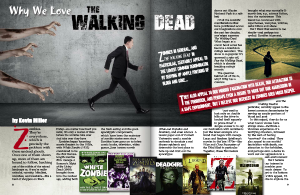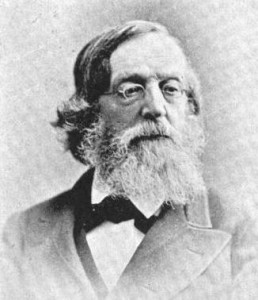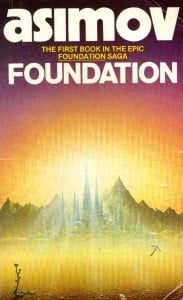Last week I began my assault on what I’m calling the four fortresses of hell, beginning with “truth.” By “fortress,” I mean a concept on which people tend to plant their flag when it comes to developing a theology of post-mortem rewards and punishments. I narrowed it down to four: truth, freedom, justice and love. There may be more, but as I teach in my screenwriting classes, these are the four principles for which most people are willing to die–or to kill.
In my last post, I tackled competing notions of truth, arguing that how we define this term will largely determine our eschatology. Today, I’m going to do the same thing with “freedom.”
Let me start by saying that the notion of freedom and what constitutes a free choice has been one of the central concerns of philosophy throughout the ages, so I’m hardly going to provide the last word in this blog post. But I have done a lot of thinking on this subject over the past couple of years, so I may have something valuable to offer.
With that caveat in mind, I think it’s helpful to begin by defining what people tend to mean when they talk about freedom or free will. Yale law school professor Paul Kahn defines a free choice as a choice that is not strictly determined by a norm or a law but one that isn’t totally arbitrary either. I think this pretty accurately describes most people’s gut-level definition of free will. If a choice were completely determined by a prior cause, it couldn’t possibly be free, because circumstances could not be otherwise. Then again, if a choice is completely random–to the point where not even we can articulate why we made such-and-such a decision–we hardly qualify as free moral agents. In this case, our choices could still be strictly determined by some prior cause or cluster of causes, we just lack the ability to locate it. So according to Kahn (and, I would argue, most people), a free choice lies somewhere in the murky middle–a choice made in light of a norm or a law but not strictly determined by it.
Of course, lurking beneath Kahn’s definition of a free choice is the assumption “freedom = non-interference.” This means the freest choice is the choice made with the least number of internal and external constraints. For example, a choice made while someone is holding a proverbial gun to your head could hardly be considered free, because the person holding the gun is placing massive constraints upon your ability to choose. Not only are they limiting your options, they are also introducing an element of fear, which tends to short-circuit the decision-making apparatus. The same is true if someone dangles a potential reward in front of you, such as a bribe. Once again, you’ve been compromised by the promise of easy gain.
In addition to fear and greed, other potential constraints on freedom include ignorance, deception and cognitive or emotional disorders. So in order to qualify as a free moral agent, it seems we would have to be fully informed of our situation, mentally and emotionally fit and not compelled by fear of punishment or promise of gain. The question is, do any of us find ourselves in this situation, especially when it comes to decisions that could potentially affect our eternal fate?
My simple answer: no.
Instead, it seems to me that such freedom is a goal that is ever wished for but never attained. We don’t start out as free moral agents, we start out utterly enmeshed in a death-driven, fear-driven existence that threatens to consume us at any moment.
Take the story of “the Fall” in Genesis, for example. After God prohibits Adam and Eve from eating from the Tree of the Knowledge of Good and Evil, along comes the snake to tempt Eve. Now, had she actually known a thing or two about God, she would have easily been able to refute the snake, just like Jesus refuted Satan in the wilderness. Instead, not only does she fall for the snake’s deception, she adds to it, saying that God didn’t just tell them not to eat from the tree, they couldn’t even touch it. Clearly, Eve was in bondage to ignorance right out of the gate. On top of this the snake adds deception and then fear. So when she finally eats the fruit, she’s the furthest thing from free. Instead, she’s essentially launching a preemptive strike against God. This isn’t a story of freedom abused. It’s a story of how easily our thinking becomes darkened and our behavior self-destructive when external forces compel us to see God as a rival rather than an ally.
That’s why I define “salvation” not as a state but as a trajectory from bondage to freedom. We don’t use our free will to choose or reject Christ. Rather, Christ progressively frees our will so we are able to choose him. If Christ is all that Christians believe him to be, rejecting him could never be described as a free choice. Instead, it would be an expression of deep emotional and psychological bondage–the height of irrationality.
So if you believe God annihilates people or sends them to hell for abusing their free will (i.e. making bad choice), what you’re really saying is that hell is full of irrational people.
Which seems… Irrational.
To which someone might respond, “Yes, but sin is inherently irrational. By choosing to sin, people willfully put themselves in an irrational state, and if they persist in it, their personality becomes irreversibly fixed, to the point where there’s no going back.”
To which I would respond with the words of philosopher Eric Reitan:
It seems that the choice to deceive oneself and the choice to put oneself in bondage to desire are choices that themselves could not be made unless one were either ignorant or in bondage to desire, and hence not free.
In other words, it’s turtles all the way down.
So it seems the fortress of freedom doesn’t need to be assaulted after all. You simply need to march around it a few times until you can see it from all angles. Then it simply collapses in upon itself.











